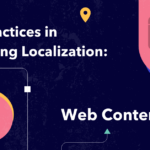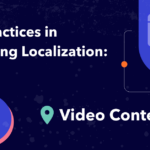Companies often make a tactical mistake when they’re trying to eliminate the language barrier in customer service: they hire agents for language first. This approach can be incredibly cost-prohibitive, especially if the customer base is relatively small and agents are only fielding a few queries a day. But, it also creates a different kind of hurdle to overcome and can turn customers off for good.
When customers contact a company, they want their issues resolved on the first try. They don’t want to have to escalate their concerns – and research shows that 67 percent of customer churn can be avoided if representatives resolve the issue right away.
For example, a company might gain a following in Italy, so they’ll hire Italian-speaking customer service agents to handle every ticket in that language. If these agents aren’t deep subject-matter experts, they’re often forced to escalate the ticket to get the customer’s issue resolved.
If you’re thinking about hiring more representatives purely for their language skills, consider hiring for expertise instead and using a language operations solution to remove the language barrier. Here are three scenarios where this approach can save you money and improve your customers’ experience.
You have a lot of different product lines
If you sell products across 13 different vertical areas and distribute them in over 100 countries, it can be extremely expensive to hire customer service representatives who specialize in each language. As was the case with Logitech, generalist support agents may not have the expertise needed to answer questions or fulfill complex inquiries. What’s more, training them on the full product line would take too much time and not allow the agents to specialize in any one product line.
If you use an AI-powered language operations solution, you can instead hire representatives who are knowledgeable about specific verticals or products and assign them to these queries. They’ll know how to resolve difficult issues or answer complex requests –and often on the first engagement with customers. For Logitech, using a language operations solution decreased escalations dramatically, cut hiring times, and even allowed them to scale to meet the demand for home office equipment during the COVID-19 pandemic.
You serve many low-volume languages
It can be hard to justify hiring even one full-time customer service agent for a specific region or language if the demand isn’t there. When request volumes are low, companies may forgo having a representative who can serve that market and miss opportunities as a result. Or they might use a free translation solution that isn’t always accurate, meaning that the customer gets increasingly frustrated or won’t have their issue resolved.
For example, TuneCore used to have representatives on staff to support five languages. But when queries came in outside these languages, they’d have to either use a solution like Google Translate or see if anyone in the organization was a native speaker. This meant support tickets could take weeks to resolve, or translations were inaccurate. But with a combination of AI and human editors to accurately translate text, TuneCore could leverage experts to handle queries in a timely fashion. They instead restructured their support department to hire agents who were knowledgeable about the music industry and its complex structure, enabling them to better serve the independent musicians who make up their customers.
Your customers require technical expertise
In the gaming industry, customers are scattered around the globe – and use gaming-specific terms. If customer service representatives don’t know the lingo, they risk turning off gamers and losing credibility. While some of the terms are the same across languages, others are region-specific, like slang or abbreviations. Finding the right support agent in just one language can be difficult, and using generic translation software means you might mistranslate an essential part of the support ticket.
For example, AI helped Wargaming handle a massive influx of customers in Asia. Japanese and Korean are among the hardest for North American and European translators to handle due to cultural nuances, sentence structure, and the different characters. But using a combination of human and machine translation made it possible for Wargaming to handle the surge and maintain fast support times – without having to rely on native language skills. Beyond gaming alone, there are many industries where technical know-how drives a positive customer experience.One of the best ways to keep your customers happy is to resolve their queries on the first try. By hiring agents for expertise, then leveraging an AI-powered language operations solution like Unbabel, you don’t have to worry about a language barrier preventing you from providing outstanding customer service.
The post 3 Reasons to Hire Customer Service Agents for Expertise, Not Language appeared first on Unbabel.












